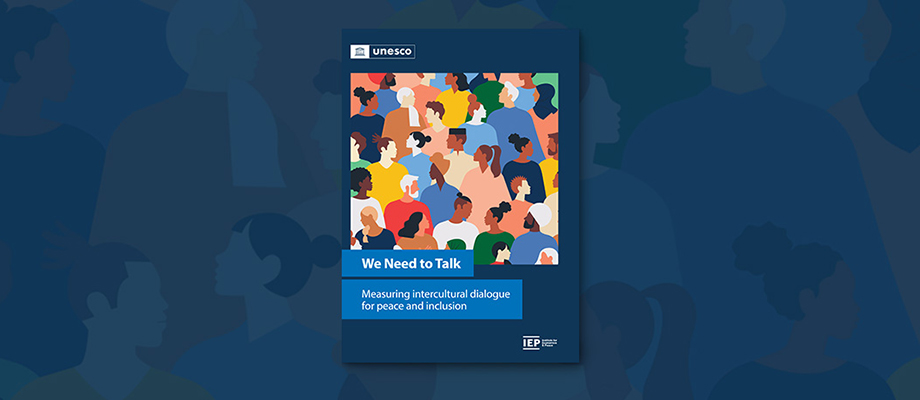Client: UNESCO
Background:
To measure the levels of Intercultural Dialogue (ICD) across 153 countries

Our approach:
The purpose of the study is to provide an assessment of how the enabling environment for intercultural dialogue (ICD) could best be measured.
In order to provide this assessment, it first looks at the concept of intercultural dialogue, how and where its contours and borders are contested and defined, and what domains and indicators might best capture the concept.
The second section of the study looks at what data exists in the domains highlighted in section one, its strengths and weaknesses, and its scope.
The final section looks at how this data might be transformed into either a single composite index, or a barometer or ‘dashboard’ of the enabling environment for intercultural dialogue, and the benefits and disadvantages of each of these approaches
To construct a draft framework for measuring ICD, IEP conducted an in-depth literature review on the factors associated with successful ICD, as well as a consultation process with experts in the field of ICD.
The section summarised the results of the expert consultation process, as well as presenting a summary of the final version of the literature review, and then examined the availability of data for the draft ICD framework that emerged from the literature review.
Outcomes:
The report presented a framework of the structures, processes and values needed to support intercultural dialogue, examining the dynamics and interlinkages between them to reveal substantial policy opportunities with broad spanning benefits
The report revealed that the effectiveness of ICD for peace and inclusion is hindered by a lack of knowledge and data-driven approaches.
By analysing key trends and relationships between different domains, the report demonstrated how ICD positively correlates with conflict prevention, economic development, and other peace and security outcomes.
It offered case studies and think pieces, shedding light on successful practices and policy implications, ultimately aimed to operationalise data-driven insights for governments, civil society stakeholders, and practitioners to enhance the effectiveness of dialogue processes on the ground.